
The Entomological Society of America's 2023-2024 elections, conducted via electronic ballot, will open July 17, 2023, and close August 16, 2023, at 11:59 p.m. U.S. Eastern Time.
Below, meet the candidates for positions within the Society and several ESA Sections and Branches, as well as candidates for Honorary Membership.
Instructions to access and complete the electronic ballot will be sent to all eligible voters via email. For additional information on voting, see ESA voting instructions. Questions? Contact elections@entsoc.org.
To see candidates, click to expand the categories below:
ESA Society Elections
ESA Vice President-Elect
 Melissa Willrich Siebert
Melissa Willrich Siebert
Corteva Agriscience
Bio: Melissa Willrich Siebert, Ph.D., is development leader for insecticides at Corteva Agriscience. She earned degrees from Texas A&M University (B.S.) and Louisiana State University (M.S. and Ph.D.) in entomology. Since 2004, Melissa has provided leadership for the development of insecticide and trait technologies, including Isoclast, spinosyns, pyraxalt, Widestrike cotton, and SmartStax corn. Her impacts have ranged from serving as an independent biology research contributor, leading teams as a project manager toward product launches, and leading a global team of project managers and discovery biologists to organizational design to meet scientific and operational excellence. Melissa received the ESA P-IE Section Recognition Award in Entomology in 2020 and has been an ESA member for 24 years.
Past ESA activity or other volunteer service: Melissa is a consistent volunteer leader. She served as 2017 P-IE President, guiding the influential "Science Policy Field Tour on Pollinator Health" and catalyzing four more tours. She previously served as chair, ESA Publications Council; subject editor, Journal Integrated Pest Management; P-IE secretary; and president, Mississippi Entomolgical Association. As Governing Board Representative, she served the Ethics & Rules Committee, modernizing and advancing Society policy; served on a team to clarify and simplify the Fellows nomination process; chaired the Leadership Development Committee, a notable impact being webinars executed to increase volunteer leaders; and currently serves on the Awards & Honors Committee. Melissa has served as associate editor, Journal of Cotton Science. She currently chairs a global IRAC working group.
Candidate statement: As a volunteer leader, I have recognized the power of ESA members in shaping the strategy and overall success our Society enjoys today—core strengths exemplified in meeting execution, publications, members, science policy. Furthermore, I believe ESA has a key role, as an organizational platform and through its talented membership, for addressing entomology-related issues and grand challenges in science. As such, I am passionate about our Society continually assessing and responding to member needs as our science changes, ensuring that we have a strong culture of inclusiveness where all current and future member talents are welcomed and embraced, and invigorating a strong opportunity for volunteer leadership.
ESA Vice President-Elect Statement: If elected, I am committed to ESA's mission of serving the professional and scientific needs of entomologists and related disciplines. A strong ESA platform, for its scientists and the science, is needed to solve the numerous global challenges that intersect with entomology: vector-borne diseases, food security, climate change, and biodiversity. To be well-positioned for the future, ESA must maintain publications, meetings, and membership as key areas of focus. I am in support of routinely assessing these core strengths to ensure member needs are met and that they are adapted to meet contemporary trends, with fiscal stewardship fully considered. To fully support these core strengths, ESA should continue to explore new innovative approaches to generating revenue, including continued participation in federal-funded programming and growing ESA certification programs. Programming and activities that will increase retention of our student and ECP membership and underrepresented groups within the field of entomology needs to be a priority. An adjacent core strength of ESA is our influence in Science Policy and Grand Challenges. I am passionate about the active role our members can take in these initiatives, using the platform of ESA to influence key issues on which our membership are leading experts. I am excited as well about the opportunity, if elected, to shape and execute upon ESA's new Strategic Plan, with focuses on maximizing knowledge sharing increasing awareness and visibility of entomology—all key features that will enable a strong ESA for the next decade.
Honorary Membership
- S. Kris Braman, University of Georgia
- Robert K.D. Peterson, Montana State University
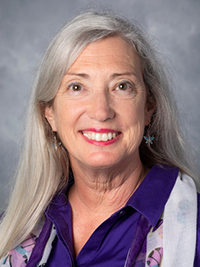 S. Kris Braman
S. Kris Braman
University of Georgia
Dr. S. Kris Braman received a B.S. (1978) degree in forest biology with an emphasis in entomology at the SUNY College of Environmental Science and Forestry, Syracuse, and a Ph.D. (1987) degree in entomology at the University of Kentucky. Braman joined Department of Entomology at the University of Georgia as a faculty member in 1989.
Her research focuses on the ecology and management of insect pests of turf and ornamental plants. Her studies blend basic and applied components to improve the sustainability and profitability of urban plant production and landscape pest management. This research emphasizes two areas: 1) identifying and increasing the use of pest-resistant and adapted turf and ornamentals and 2) integrating natural enemies and alternative control technologies into IPM through enhanced understanding of tritrophic interactions in urban plant systems. Most recently her research and teaching focus has centered around conservation of pollinators and other beneficial arthropods. This is reflected in her most recent publications and invited presentations including a TEDx Atlanta talk in May 2023.
Braman has produced, with her students, over 200 publications, including 159 refereed journal articles and 16 book chapters. As director of the Center for Urban Agriculture from 2011 to 2016, she provided leadership in delivery of science-based information to stakeholder groups. The Center mission includes urban county agent program planning and training, professional proficiency certification, online educational programming and support, regional educational programming, and related grant management. Braman is now professor of entomology and department head in the Department of Entomology at the University of Georgia (UGA), in Athens, Georgia. She leads a department of 42 faculty and 65 graduate students located on three campuses.
She has provided extensive direct service to ESA, as well as indirect service by encouraging and sponsoring hundreds of graduate students, postdoctoral scholars, and faculty members in her department to participate in ESA activities at the Section, Branch, and national level, and she has created many opportunities for them to serve ESA at all levels. She served entomology by taking an active role in scientific societies, conferences, workshops, and consultation to the urban agricultural community; mentoring postdocs, graduate, and undergraduate students; and serving on numerous committees.
Braman's participation in and service to ESA began in graduate school. Convinced by her own mentors (Ken Yeargan, Ph.D., and Bobby Pass, Ph.D.) of the importance of involvement and service to ESA, she has made it a career-long commitment. During her last 12 years as an administrator, her main contribution has been to instill that concept to create a culture of involvement and participation in ESA among faculty and students in the Department of Entomology at UGA. She has been a member of ESA since 1983 and has participated in 33 national Annual Meetings and 32 Branch Meetings. She has been a strong proponent of service at the local level in support of ESA Branches, believing that strong Branches are the backbone of our Society. Six of the last 14 Southeastern Branch presidents are UGA faculty or alumni. Her most recent efforts involve nominating faculty for awards and ensuring funding to send graduate and undergraduate students to meetings—for example, sending more than 30 students to the 2022 Joint Annual Meeting in Vancouver. This is becoming increasingly challenging with the cost of travel.
Braman's ESA service includes president of the Southeastern Branch (SEB); SEB Entomology Games judge; chair of the SEB Nominating Committee; member of the SEB Executive Committee (both in the presidential line and as a member-at-large), Program Committee, Resolutions Committee, and Auditing Committee; member of the ESA Nominating Committee, Rules Committee, Youth and Education Committee, and awards judging panels; and symposium organizer, frequent student competition judge, and session moderator and coordinator. Braman has also been an active supporter of her state professional society, the Georgia Entomological Society (GES), where she has served as president, past president, historian, program chair, and Student Affairs Committee chair; as a member of the scholarship selection committee, Executive Committee, and Photo Salon; and as business manager for the society journal, Journal of Entomological Science.
Braman is a recipient of the SEB Distinguished Achievement Award in Horticultural Entomology and the Georgia Green Industry Association Environmental Friend of the Year Award and has been recognized as Distinguished Alum of the Entomology Department at the University of Kentucky. She was chosen for the 2007–2008 LEAD 21 Leadership Program and selected as a 2019 UGA Women's Leadership Fellow. Braman is also a GES Fellow, selected in 2013. She has received society-sponsored outstanding project or publication awards in 2008, 2013, 2018, and 2019 and is a team-member recipient of a Southern IPM Center Center Bright Idea Award.
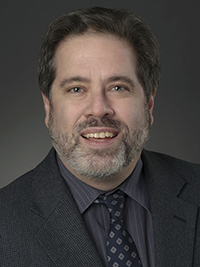 Robert K.D. Peterson
Robert K.D. Peterson
Montana State University
Dr. Robert K.D. Peterson has served the Entomological Society of America (ESA) and its membership at a consistently high level for almost 40 years. Additionally, he has developed a distinguished career in research, teaching, and administration over this period.
Peterson received his B.S. in entomology from Iowa State University in 1987 and his M.S. and Ph.D. in entomology from the University of Nebraska in 1991 and 1995. He is currently professor of entomology and department head at Montana State University (MSU). As department head, he leads the Department of Land Resources & Environmental Sciences. As professor, he leads the research and teaching program in Agricultural and Biological Risk Assessment. Specifically, his programs are centered on comparative risk assessment and include focused research on pesticide, biotechnology, and invasive species risk. His work has had a significant and lasting impact on helping to define regulatory approaches and effective strategies for practical pest management implementation (including area-wide approaches). Additional areas of research emphasis include insect ecology, plant-stress ecophysiology, and integrated pest management.
He has published 131 peer-reviewed journal articles, 15 book chapters, and two books on these and other entomological topics where he is considered an international expert. He has taught undergraduate and graduate courses, including environmental risk assessment, insect ecology, and various special-topics graduate courses. He also founded the Professional M.S. program in environmental sciences at MSU in 2011 and directed it until 2022. He has been at MSU since 2002 building a tremendous body of work and receiving numerous awards from peers, including a Distinguished Faculty award from MSU and the Award of Excellence in Integrated Pest Management from the ESA. From 1995 to 2001, he was a scientist and regulatory specialist with Dow AgroSciences where he pioneered the application of biological risk assessment to the discovery and development of crop protection technologies.
Peterson has been an ESA member since he was a sophomore at Iowa State University in 1985. He has held numerous volunteer leadership positions in ESA since 1992. These include, in part, student representative of Section F in 1994, member of the North Central Branch and Pacific Branch Annual Meeting Program Committees, chair of the NCB Public Information and Public Relations Committee in 1998, member of the Founders' Memorial Lecture Committee from 2003 to 2005, and moderator of the ESA Webinar on Cultural Competence and Inclusion in 2022. In addition, he has served as co-moderator, co-organizer, and presenter of numerous symposia since 1992. From 2006 to 2008, Peterson was a member of the Annual Meeting Program Committee, culminating in serving as chair in 2007, which marked a new era for innovative programing for the Annual Meeting as ESA transitioned to a four-Section model. He was a member of the Committee on the Insect Calendar from 2008 to 2015 and its chair from 2009 to 2014. He has been a contributing editor for American Entomologist since 2001.
From 2010 to 2012, Bob was a member of the Governing Board, representing the P-IE Section. From 2011 to 2012, he was a member of the Executive Committee of the Governing Board. From 2012 to 2013, he was chair of the ESA Presidential Committee on Science Policy, which produced the initial policy agenda that remains the foundation for ESA's science policy influence. His work with Science Policy created a sustained capability for ESA that has increased the stature and relevancy of entomology and its members with policy makers. From 2016 to 2019, he was on the Governing Board and in the ESA presidential line. In 2019, Peterson served as president of ESA and created initiatives on advocacy and innovation, including the "Antlion Pit" competition to stimulate member problem solving and engagement. In 2020, as immediate past president, he served as chair of the ESA Science Policy Committee. He currently serves as advisory board member to the International Congress of Entomology.
Outside of ESA—but within entomology, risk assessment, and integrated pest management—he has served on numerous grant panels, editorial roles, and journal peer reviews. Always using ESA as a preferred venue and outlet for his research and professional engagement, Peterson has multiplied his own efforts many times through his students, colleagues, and associations, making the Society a stronger and more effective association for everyone through his service.
Physiology, Biochemistry, & Toxicology (PBT) Section Elections
PBT Section Representative to the ESA Governing Board
- Peter Jensen, Bayer Crop Science
- Richard Mankin, USDA-ARS Center for Medical, Agricultural, and Veterinary Entomology
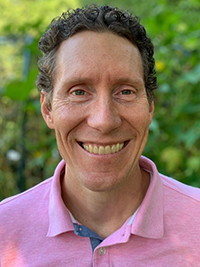 Peter Jensen
Peter Jensen
Bayer Crop Science
Bio: Peter is an entomologist and has been working at Bayer Crop Science for the last 13 years. Peter's roles at Bayer have ranged from product development to environmental risk assessment, all focused on the insect control plant biotechnology portfolio. As Entomology Development Platform lead, he manages entomologists that direct field efficacy testing programs as well as teams that rear insects for product discovery, development, and stewardship bioassays. Peter's path to Bayer includes discovering a passion for entomology during B.Sc. biology studies at the University of Waterloo in Canada, an M.S. in entomology from Montana State University, a Ph.D. in entomology from University of California, Riverside, and postdoctoral research at the University of Maryland, College Park.
Past ESA activity or other volunteer service: Peter served on the PBT Section Governing Council from 2016 through 2021 in several roles: vice president-elect, vice president, president, past president, and committee rep. He learned about creating value for members, communication and engagement with members, and the flurry of work for our Annual Meeting. As the PBT Section rep to the ESA Awards and Honors Committee, he was nominated to chair the committee in 2021 and 2022. Peter built experience listening, building consensus, leading, and acting to improve diversity, inclusion, and accessibility within ESA. Peter served on the ESA Committee for Audit from 2020 to 2022, reviewing and learning about ESA's finances and obligations with an external auditor. Finally, he learned about assessing desire and need for change while participating in the Presidential Task Force for Assessing Regional Needs of Members in 2021.
Candidate statement: The last decade has been a whirlwind of change around the world, and I'm excited that ESA has reflected and responded with changes of our own. My experiences in ESA leadership roles have been empowering; bringing our volunteers together to listen, align, and implement our best ideas to make impactful changes. I was fortunate in these years to have inspiring charges from our ESA presidents, dedicated committee members, and the opportunity to make a difference. If elected I will continue to drive progressive and sustainable changes for the ESA. I know the opportunities we have in the PBT Section and broadly as a professional society. I bring leadership skills and experience from my roles at Bayer and ESA to be an effective member of the Governing Board, and I want to continue leveraging our innovative leadership and talented members to build up ESA and meet the needs of our Society.
 Richard Mankin
Richard Mankin
USDA-ARS Center for Medical, Agricultural, and Veterinary Entomology
Bio: Richard Mankin is a research entomologist at the USDA-ARS Center for Medical, Agricultural, and Veterinary Entomology. His research focusing on detection and management of hidden infestations of insects in stored products, soil, and trees has led to 126 peer-reviewed articles and patents on insect physiology, behavior, and pest management. He has served as PBT representative to Editorial Board for the Journal of Economic Entomology (2001-2005) and Annals of the Entomological Society of America (2008-2012) and on the Books and Media Reviews Editorial Board (2009-2012). He has served as a subject editor for PLOS ONE (since 2015), Insects (since 2020), and Florida Entomologist (since 2020) and as a reviewer of 50 or more manuscripts yearly over the last decade.
Past ESA activity or other volunteer service: Richard Mankin has served as PBT representative to the ESA Governing Board since 2020 and is a member on the Finance Committee. The Board supports efforts to maintain high-quality journals and Annual Meetings, ensure sound risk-management policies, and organize future ESA innovations. Richard served PBT previously in roles as Section treasurer and president and has supported student activities, educational outreach, and diversity, equity, and inclusion (DEI) initiatives during 45 years as an ESA member. He has presented in Acoustical Society of America and AAAS symposia and has served as president and webmaster of the Florida Entomological Society and president of the Foundation for Science and Disability.
Candidate statement: It's been an honor serving as on the Governing Board during a challenging pandemic in which ESA continued Annual Meetings and supported scientific achievement. The Board has supported early career entomologists and now is considering a new section for Formal and Informal Teaching for members primarily involved in teaching activities. If re-elected, I plan to cooperate with other ESA members, the PBT Section, and the Governing Board to continue progress in DEI initiatives and address potential changes in the fiscal climate, changes in patterns of publication and manuscript reviews, and positive and negative effects of artificial intelligence on ESA activities, as well as potential effects of global climate change and decreasing insect biodiversity on agriculture.
PBT Section Vice President-Elect
- Priya Chakrabarti Basu, Mississippi State University
- Ana M. Vélez, University of Nebraska-Lincoln
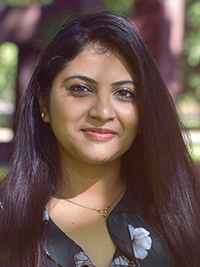 Priya Chakrabarti Basu
Priya Chakrabarti Basu
Mississippi State University
Bio: Dr. Priya Chakrabarti Basu is an assistant professor at the Department of Biochemistry, Molecular Biology, Entomology and Plant Pathology at Mississippi State University. She studies the interactive impacts of multiple stressors on bees (poor nutrition, pesticides, and climate change). She uses a wide array of multidisciplinary techniques across fields such as physiology, toxicology, functional biology, multiomics-based approaches, and neuroethology to address her research questions. She is currently chair of the ESA Early Career Professionals Committee and secretary/treasurer of the American Association of Professional Apiculturists and serves on the ESA Leadership Development Committee. Apart from research and teaching, she is actively involved in outreach and is also a children's book author to help spread pollinator awareness among young readers.
Past ESA activity or other volunteer service: Dr. Chakrabarti-Basu is an active member of the ESA Pacific and Southeastern Branches and PBT Section. She is current chair of ESA ECP committee and a member of the Leadership Development Committee and chairs the Standout ECP Series subcommittee for Entomology Today. As ECP chair, she organizes various webinars, symposia, and workshops. She is a mentor for the ESA EntosMentos program, organizes symposia and workshops at Branch and national ESA meetings, and is a volunteer judge for student competitions, moderator for various symposia, volunteer for numerous PBT activities, and reviewer for ESA journals. She is also secretary/treasurer of the American Association of Professional Apiculturists, North American chair of the COLOSS bee nutrition taskforce, vice-chair of the multistate bee research group, and director for the Mississippi Entomological Association.
Candidate statement: I come from a multicultural Indian city and an eclectic melting pot of beliefs. I have the honor of serving as the chair of the ESA ECP committee, and I have learned immensely the values of leading a committee by understanding needs to help improve the overall ECP experience. I bring these values and experiences with me to create a diverse, inclusive, and transparent environment by reaching out to all PBT members; bridging the gaps with other committees, Sections, and Branches via monthly meetings with the representatives; advocating for diverse participation; acknowledging emerging talents; and creating mentoring opportunities across PBT. I will facilitate brainstorming sessions to create a list of important scientific and outreach goals for PBT; bolster PBT activities, symposia, and workshops at the Branch and national meetings; and engage PBT members in ESA activities.
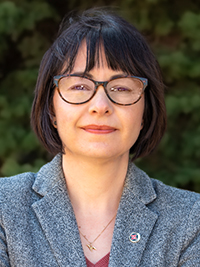 Ana M. Vélez
Ana M. Vélez
University of Nebraska-Lincoln
Bio: Ana Vélez is an associate professor in insect toxicology at the University of Nebraska-Lincoln (UNL). She was born in Medellín, Colombia, and has a B.S. in biology from Pontificia Universidad Javeriana, an M.S. in entomology from Universidad Nacional de Colombia, and a Ph.D. in entomology from UNL. Her research focuses on how insects respond and adapt to chemical stressors but has emphasized RNAi for managing western corn rootworms; she is considered an international expert on the topic. She has obtained $2.7 million in funding, published 49 peer-reviewed articles, given 40 invited national and international talks, and mentored 28 students and postdocs and and holds six RNAi patents. She is also passionate about mentoring and student mental health. Over the last four years, she has incorporated mindfulness in classes and mentoring to help students manage stress.
Past ESA activity or other volunteer service: Ana Vélez has been actively involved at ESA since 2014. At the national level she served as ECP Committee chair and vice chair, at the PBT Section as ECP and DEI Committee rep, and at the North Central Branch (NCB) as Executive Committee member-at-large and ECP chair. As ECP chair she coordinated the development and launch of the ECP awards, organized three events, and submitted the first lecturer and honoree female Founders' Memorial Lecture. As part of the NCB Executive Committee, she obtained $35,000 from industry to support the annual meeting and launched the NCB-ECP committee. She has also organized 16 ESA symposia and is a subject editor for Environmental Entomology. At UNL, she has served in the Association for Women in Science committee and the Institute of Natural Resources DEI Advisory Group and is currently a DEI Fellow designing resources for integrating DEI in research.
Candidate statement: Over the last decade, my service has focused on committees and initiatives that improve the status of minorities. As PBT VP-elect, my first goal will be to implement some of the initiatives I have learned from previous roles aimed at improving equity and inclusion. I will do this by offering a webinar series on creating inclusive and equitable research teams. My second goal will be to continue the reinvigoration of the Section of the last years by gathering members' feedback to determine what is being done well, what can be done better, and potential new directions. My final goal will be to find resources to develop a mini-grant program to support new ideas or research directions for students and ECPs. My inspiration for service comes from the idea of leaving every place better than when you arrived, and that is what I would like to do with PBT if elected.
PBT Section Treasurer
- Navdeep Mutti, Corteva Agriscience
- Kris Silver, Kansas State University
Navdeep Mutti
Corteva Agriscience
Bio: Dr. Navdeep Mutti is a very strong candidate for the PBT section Treasurer based on a track record of distinguished achievements in his academic and industrial career that have significantly advanced the field of entomology. He received his Ph.D. from Kansas State in 2006, his work focused on elucidating the role of salivary secretions in aphid-plant interactions. Dr. Mutti also did a postdoc at Arizona State university, where he first studied female caste diphenism in honey bees and later ant genomics and epigenetics. In 2011, he joined DuPont-Pioneer as a research scientist leading the hemipteran discovery program. Since then, Dr. Mutti has acquired the unique experience of working in both biotech trait discovery as well as crop protection chemistry as a discovery senior scientist. Dr. Mutti has been with Corteva for over 12 years and is now the technology enablement lead.
Past ESA activity or other volunteer service: Dr. Mutti has extensive volunteer and outreach experience at ESA and at the Insect Resistance Action Committee. Starting from his graduate student days, he has regularly volunteered at the ESA where his assignments have varied over the year starting with helping around the registration desk and presentation uploading to now serving as judge for the student competition. Dr. Mutti has hosted ESA Member Symposia as well as Section Symposia. Dr. Mutti is actively involved in the Harvest for Hunger Garden Initiative in Indianapolis maintained by Corteva employees. As part of this initiative, there is an active honey bee colony maintained at the site. This bee colony is used for education of elementary, middle, and high school students as part of their onsite tours. The active garden season runs from March to November and comprises over 100 volunteer events.
Candidate statement: My passion for leadership and service comes from deep gratitude for the opportunity to pursue a graduate education at Kansas State University. When elected for this task, I will allocate the needed time to represent and support the PBT Section. Based on my wide interests, I see the need for the PBT Section to function as a platform for the dissemination of research findings and other scientific information to the broader entomology community worldwide.
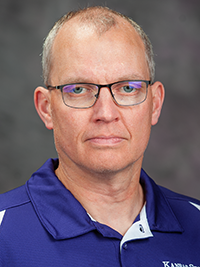 Kris Silver
Kris Silver
Kansas State University
Bio: Dr. Silver is an associate professor and director of the Integrated Molecular Entomology Core Laboratory in the Department of Entomology at Kansas State University. He received his Ph.D. from Cornell University in 2005 and completed several post-doctoral positions. Dr. Silver has been part of the Department of Entomology at K-State since 2016 and was promoted to associate professor in 2022. His research interests are in molecular entomology and toxicology, RNA interference, and the effects of pathogen infection on vector physiology. His full publication record can be found at https://www.ncbi.nlm.nih.gov/myncbi/1VwC3jpkz_6sCm/bibliography/public/.
Past ESA activity or other volunteer service: Kris Silver has been a member of ESA and PBT since 2016. He has served as PBT treasurer for the past three years and volunteered consistently as a student competition judge at the ESA Annual Meetings.
Candidate statement: I have served as treasurer of PBT for the past three years and look forward to helping shape the course of the PBT Section over the next three.
Early-Career Representative to the PBT Section Governing Council
- Elizabeth (Liz) Walsh, USDA-ARS Honey Bee Breeding, Genetics, and Physiology Unit
- Caixing Xiong, Texas A&M University
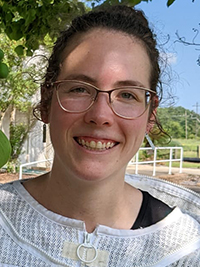 Elizabeth (Liz) Walsh
Elizabeth (Liz) Walsh
USDA-ARS Honey Bee Breeding, Genetics, and Physiology Unit
Bio: In May 2022, Liz was hired by the USDA-ARS to study honey bee health—her dream job. She expanded her experiences as a beekeeper to include scientific studies during her bachelor's degree at a small liberal arts college in Wisconsin (Ripon College) and continued these studies by earning her Ph.D. in entomology at Texas A&M University. There she examined the physiology and behaviors of queens post-pesticide exposure. After graduating in 2019, she looked at the impact of breeding on disease resistance during a postdoctoral fellowship in Alberta, Canada. Throughout her career, Liz has done extensive science communication to share her findings about responsible pesticide use, disease ecology, and breeding strategies with beekeepers who can put her findings into practice. As an Early Career Professional, Liz is interested in giving back to ESA and excited to run for this position.
Past ESA activity or other volunteer service: As a student, Liz was the chair of the Ecological Integrated Symposium, an annual student-organized conference with international speakers and student presentations at Texas A&M University. She was also involved in her department's Entomological Graduate Student Organization in leadership roles for four years. As a graduate student member of ESA, Liz volunteered for school group outreach events at regional and national meetings, listened and was listened to in scientific presentations, met giants in her field throughout her graduate student career, and was able to attend regional and national ESA meetings (as well as ICE in 2016). She also served as an ESA conference volunteer for two years and is greatly looking forward to attending the meeting in November.
Candidate statement: I did my graduate student work in the Southwestern Branch and was extremely active in student professional organizations, was a postdoctoral fellow in Canada, and am now a new member of the Southeastern Branch, so I am privileged to know a diverse group of fantastic fellow entomologists—many of whom are ECPs. I hope that by serving ESA as an ECP representative to the governing board, I can ensure that current and future ECPs are given the same—or more!—professional opportunities that I have had. As someone who was encouraged to apply to her postdoctoral position because her (future) supervisor had met her at ESA meetings, I highly value how important ESA attendance and participation is for ECPs and want to work to ensure these opportunities are available to everyone.
Caixing Xiong
Texas A&M University
Bio: Caixing received her doctoral degree in entomology from Texas A&M University in 2020, her master's degree in entomology from Auburn University in 2016, and her bachelor's degree from China Agricultural University. She works as an assistant research scientist at Texas A&M University. She has a broad research interest in insect behavior, physiology, endocrinology, neurobiology, and IPM of important agricultural pests. She received an ESA John Henry Comstock Graduate Student Award in 2021. She has authored and co-authored 10 peer-reviewed publications in top entomological journals such as Pest Management Science and Current Opinion in Insect Science.
Past ESA activity or other volunteer service: Caixing is an active ESA member and a PBT member since 2016. She is a third-year early career member. She has participated in six ESA meetings and presented in ESA Annual Meetings five times, two of which were in PBT Section symposia. She is the co-author of three other ESA presentations. She participated in the ESA Professional Advancement Career Training program in 2022-2023. She volunteered at the 2019 St. Louis ESA Annual Meeting to coordinate presentation uploads. She is an organizer and subcommittee member for career development and mentoring for the 2023 Intersections Science Fellows Symposium. She served as a board member of Aggie Women in Entomology (2020-2021).
Candidate statement: As an enthusiastic and dedicated early career professional, I am eager to represent the needs and aspirations of this vibrant community. I understand the unique challenge and opportunities that early career professionals faced. My vision for this role is to advocate for the concerns and interests of the group, to foster mentorship and support, to facilitate professional development, and to promote collaboration and networking. I have rich experiences in organizing and participating professional skill development workshops and symposiums for early professionals. I am committed to being a dedicated representative and will ensure the voice of early professionals are heard in the PBT Section Governing Council and ESA at large.
Plant-Insect Ecosystems (P-IE) Section Elections
P-IE Section Vice President-Elect
- Lauren Diepenbrock, UF/IFAS Citrus Research and Education Center
- Rob Morrison, USDA-ARS Center for Grain and Animal Health Research
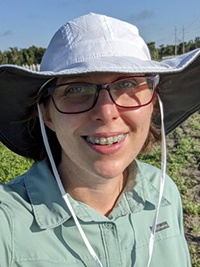 Lauren Diepenbrock
Lauren Diepenbrock
UF/IFAS Citrus Research and Education Center
Bio: Lauren Diepenbrock completed her Ph.D. at the University of Missouri studying insect ecology, completed a postdoc at North Carolina State University working on IPM for spotted wing drosophila, and is now a faculty member at the University of Florida. During this time, she has been active at the national level and regional levels in supporting the activities of ESA (see service section). Dr. Diepenbrock has a history of leadership to our profession and has been recognized for her efforts in extension and research through regional and national awards, including the ESA ECP Extension Award and the Southern IPM Center's Friends of IPM Future Leader Award. At UF, she is the lead for Citrus Entomology IPM, working with faculty, extension agents, and growers to ensure that IPM research and programming is meeting the needs of a diverse clientele.
Past ESA activity or other volunteer service: Dr. Diepenbrock served on the ESA Science Policy Committee for seven years. During this time, she worked on policy statements, helped develop infographics, and most importantly had a voice in shaping the future of ESA with regard to our voice in policy issues. While not formally involved in the committee, Diepenbrock remains interested and engaged in science policy and knows the importance of our voices in supporting the issues we care about. Lauren has become more involved in P-IE in the past few years, attending the 2018 Invasive Species Tour and now preparing to co-host the 2023 tour. Diepenbrock is in her second year serving on the Leadership Development Committee and actively supporting others to volunteer and help shape our Society!
Candidate statement: If selected for this role, I hope to strengthen the sense of belonging for all our members in the P-IE Section and challenge them to forge new outlets for our Section's goals. The P-IE Section has been working toward a more inclusive environment for years, and you can see it now in the number of business-meeting participants. As we continue to grow, this inclusive atmosphere encourages members to be more engaged in our initiatives. Field tours have been an important addition to our section, and I would like to see more member-driven initiatives like these. The tours discuss important topics while providing opportunities for interactions that many of us would never have had. During the 2018 tour, I spent days discussing issues with new colleagues, and now several are collaborators. I want to provide similar opportunities for ESA members in the future.
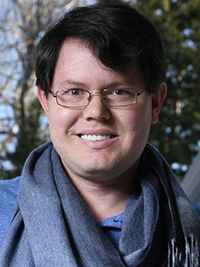 Rob Morrison
Rob Morrison
USDA-ARS Center for Grain and Animal Health Research
Bio: Dr. Rob Morrison is a research entomologist for the USDA-ARS Center for Grain and Animal Health Research in Manhattan, Kansas, where his program involves elucidating the behavioral and chemical ecology and improving IPM of stored product insects. The goal of his research is to develop behavior-based management programs for insects after harvest. He received a B.A. in biology from Kalamazoo College in Michigan, an M.S. in ecology and evolution from the University of Munich in Germany, and, in 2014, a Ph.D. from the Department of Entomology at Michigan State University. From 2014–2016, Rob was a postdoctoral researcher at the USDA-ARS Appalachian Fruit Research Station. Dr. Morrison has published 95+ peer-reviewed manuscripts and obtained over $11 million in extramural funding, and he and his students have given 300+ presentations in 40+ U.S. states and 10+ countries.
Past ESA activity or other volunteer service: Rob's history of service for ESA ventures back over a decade, and he considers ESA his professional home. Notably, Dr. Morrison served first as a member then as the vice chair and chair of the ESA Early Career Professionals Committee from 2015–2018. Rob is serving as the P-IE rep and chair of the ESA Awards and Honors and as member-at-large of the Executive Team for the North Central Branch. In the past, he has served on 20+ committees, taskforces, and judging panels for ESA, including the Diversity and Inclusion Committee, P-IE Nominations Committee, the P-IE Invasive Species Field Tour, and the Canvassing for Awards and Honors Committee. He has served as a judge for student P-IE competitions at 13 ESA meetings. Dr. Morrison serves as subject editor of behavior for Environmental Entomology and associate editor for the Journal of Economic Entomology.
Candidate statement: I have a "big tent" view of P-IE and believe that we should be the most responsive, inclusive Section among those in ESA. In my own lab's culture, I have always tried to bring the least enfranchised voices to the table and have tried to lift everyone up, because I believe we are nothing if not a team that supports each other. I will bring this same worldview to my leadership of P-IE, try to notice who is not being included, make an effort to bring in those members, and make sure their needs are being met by our Section. Our Section is so vibrant in part because it is so dynamic, and I want to see P-IE continue to adjust to the changing needs of our discipline and bring diversity, equity, and inclusion into everything it does as it meets the new challenges of our discipline.
P-IE Section Treasurer
- Michelle Boone, Washington State University
- Luis Espino, University of California Cooperative Extension
- Timothy Nowatzki, Corteva Agriscience
- Hailey Shanovich, University of Minnesota
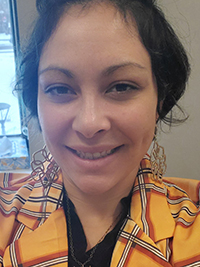 Michelle Boone
Michelle Boone
Washington State University
Bio: Michelle Boone is passionate about insect conservation, sampling design, and leadership development. She has a B.S. in biology from the University of St. Thomas and recently completed her Ph.D. in entomology at the University of Minnesota. Her doctoral research focused on enhancing detection of rare bumble bees through sampling design. During her graduate studies, Michelle completed an internship with the U.S. Fish and Wildlife Service developing survey protocols for Bethany Beach fireflies, Photuris bethaniensis. Michelle recently joined the Conservation Biology Lab at Washington State University to work on native bee and monarch research.
Past ESA activity or other volunteer service: Michelle joined ESA in 2017 and has presented her research at four national and two Branch meetings. She has served as the P-IE Section Student Representative and is co-organizing a workshop for the 2023 Annual Meeting about applying for professional awards. Michelle completed the ESA Professional Advancement Career Training initiative and has participated in the EntoMentos program as a mentor and mentee. Michelle has gained leadership experience from serving as chair of the Graduate Student Board at the University of Minnesota and as a board member on the Saint Paul District 6 Council in Minnesota. In her spare time, Michelle volunteers through the Xerces Society Ambassador Program, attending public events in Oregon and Washington to disseminate information about native insect conservation.
Candidate statement: I am interested in serving as treasurer for the P-IE Section to continue my professional growth and development journey, and to serve the P-IE section and its members. I am passionate about leadership and want to expand on my previous experience serving as the P-IE Student Representative. I have experience tracking expenses and balancing budgets from managing grants as a graduate research fellow and district council member. I feel I am qualified and capable of serving in the treasurer role and would be honored for the opportunity to serve again on the P-IE Governing Council!
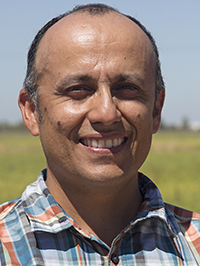 Luis Espino
Luis Espino
University of California Cooperative Extension
Bio: Luis Espino obtained his Ph.D. in entomology and M.Ag. in agronomy from Texas A&M University and his B.S. in agronomy from Universidad Agraria La Molina (Lima, Peru). Since 2007, Luis has worked as rice farming systems advisor for the University of California Cooperative Extension, helping Sacramento Valley growers solve rice production challenges. Luis' entomology work focuses on refining IPM programs for rice pests such as tadpole shrimp and armyworms. From 2014 to 2023, Luis served as county director for the UC Cooperative Extension office first in Colusa and later in Butte.
Past ESA activity or other volunteer service: Luis has been a ESA member since 2005 and has participated in the Education and Outreach Committee. During Annual Meetings, Luis enjoys volunteering as a student competition judge. Luis is also a member of the Phytopathological Society of America.
Candidate statement: I am interested in serving as treasurer of the P-IE Section as a way to give back to ESA. Over the years, I have benefited from the networking and exposure to new ideas during Annual Meetings. I see this volunteering opportunity as a first step into a more active role in the Society.
Timothy Nowatzki
Corteva Agriscience
Bio: Dr. Tim Nowatzki is a research entomologist and laureate with Corteva Agriscience and is presently a global biology leader in the biotechnology group. Tim obtained his B.S. in crop and weed science (1993) and M.S. in entomology (1996) from North Dakota State University. Tim completed his Ph.D. in entomology at Iowa State University (2001) and a postdoc at the University of Nebraska-Lincoln (2003) where his research focused on the biology and management of corn rootworms. Tim joined DuPont Pioneer (2003) in Johnston, Iowa, where his roles within research and development have been the characterization, development, and technical support of traits for above- and below-ground insect control.
Past ESA activity or other volunteer service: Tim has been a member of ESA since 1995 and is an accredited Board Certified Entomologist. As a member of ESA, he regularly presents or co-authors research results at ESA national and Branch meetings and has published several articles in ESA journals. Tim has volunteered numerous times to judge ESA student competition paper and poster sessions at both the national and Branch meetings. Leadership roles within ESA have included chair (1998-99) and vice chair (1997-98) of the North Central Branch Student Affairs Committee. Tim is a member of the Certified Entomologists of Mid-America (2013) and has been treasurer since 2017. Currently, Tim is serving as acting P-IE treasurer.
Candidate statement: Currently, I have been acting P-IE treasurer since February 2023 and would very much like to continue serving in this role for another term to help create innovative learning and development opportunities for P-IE membership.
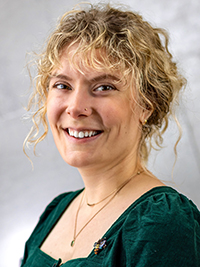 Hailey Shanovich
Hailey Shanovich
University of Minnesota
Bio: Dr. Hailey Shanovich is a very recent graduate of the University of Minnesota (UMN) Natural Resource Science and Management graduate program with a minor in entomology (Ph.D., class of 2023) and an alum of the UMN's entomology graduate program (M.S., class of 2019). They are a highly active ESA member having been recognized for their leadership and substantial service to ESA and the North Central Branch through receipt of multiple student awards. They have extensive experience working as a liaison to ensure open communication, most recently serving as Student Representative to the P-IE Governing Council, and so are familiar with the P-IE Section's happenings and procedures.
Past ESA activity or other volunteer service: Dr. Shanovich is active in ESA and has provided substantial volunteer service since the start of their doctoral career. They have served as chair-elect and chair of the North Central Branch (NCB) Student Affairs Committee (2021-23) and Student Representative to the P-IE Governing Council (2022-23). They also volunteered on the Local Arrangements Committee for the 2022 NCB Meeting in Minneapolis. They have also presented at seven ESA and Branch Meetings and published six first-author manuscripts in ESA journals since 2018. Additionally, they have co-organized symposia for ESA meetings, including a Member Symposium at the 2022 meeting in Vancouver and a hot-topics discussion session for P-IE. Lastly, they have also contributed by writing for Entomology Today, participating in multiple Entomology Games, and submitting an insect common name proposal (that was approved).
Candidate statement: I am interested in serving as P-IE Section treasurer because I care deeply about the future success of ESA as a whole and the P-IE Section in particular, having been a member of both since 2018. I have experience serving as Student Representative to the P-IE Governing Council and am familiar with the duties of the position and procedures of the P-IE Section. I am also very familiar with happenings Society-wide. I have been an effective representative because I am an innovative thinker, sound decision maker, and trusted ambassador of ESA. I would be honored to serve in this role for the P-IE Section to ensure open communication between the two entities. Last, I have multiple years of treasury experience from serving as president and fundraising coordinator for the University of Minnesota Entomology Student Association, a registered nonprofit organization.
Medical, Urban, and Veterinary Entomology (MUVE) Section Elections
MUVE Section Vice President-Elect
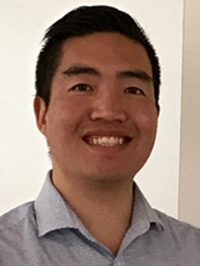 Alexander Ko
Alexander Ko
Envu
Bio: Alexander Ko received his Ph.D. in entomology from North Carolina State University in 2016. He was a regional technical manager for McCloud Pest Control Services in the Chicagoland region before joining Envu (formerly Bayer) as a product development manager and senior scientist. Currently, Alex manages the development of new products from concept to launch for the pest management industry, ranging from traditional baits, dust, and sprays to novel and innovative technologies. His experience and involvement in professional pest management have given him a unique position in understanding the problems the urban pest management industry faces and the potential solutions that could be created to solve them.
Past ESA activity or other volunteer service: As an active member of the ESA, Alex regularly presents research at the MUVE Sections at Annual Meetings and gives training presentations for pest management professionals (PMPs). Besides publishing research on bed bugs and ants, Alex has also authored numerous research publications on German cockroaches and has reviewed several book chapters for Biology and Management of the German Cockroach as well as the Mallis Handbook for Pest Control. Alex regularly contributes articles to PMP and PCT magazines for PMPs and presented the Highlights in Urban Entomology in 2020. Alex is also passionate about using technology in the pest management industry and has coded entomology mobile apps for the public.
Candidate statement: I am interested to serve the MUVE community in a new and more involved way, beyond research publications and presentations. My diverse experiences enable me to advocate effectively for academia, pest management professionals, and manufacturers. My primary objective in assuming this role would be to ensure the smooth operation of the MUVE Section. Additionally, I would like to further develop collaboration and communication among the diverse participants in MUVE. The values that I bring to the MUVE Section are integrity, collaboration, and innovation.
MUVE Section Treasurer
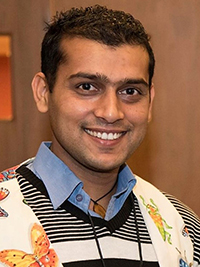 Sudip Gaire
Sudip Gaire
Central Life Sciences
Bio: Dr. Sudip Gaire is a product development specialist and entomologist at Central Life Sciences (CLS), Dallas, Texas. He manages research projects from early to late stages for developing insecticides against urban, livestock, and public health pests. Prior to joining CLS, he was a postdoc in urban pest management at the University of Kentucky. He earned his Ph.D. in urban entomology from Purdue University (2020), his M.S. in urban entomology from New Mexico State University (2016), and his B.S. in agriculture from Tribhuvan University (2013). He has been an active member of ESA and MUVE since 2015. His research has been acknowledged through publications in peer-reviewed journals and press releases, and his accomplishments have been recognized through multiple national-level awards.
Past ESA activity or other volunteer service: Dr. Sudip Gaire has served in leadership roles in various professional and community organizations, such as the MUVE Diversity and Inclusion Subcommittee (member), ESA North Central Branch Early Career Professionals Committee (vice chair), Society of Overseas Nepalese Entomologists (award chair, president, president-elect, secretary, treasurer), Purdue University Entomology Graduate Student Organization (vice president, treasurer) and the ESA Diversity and Inclusion Committee (member). Additionally, he has organized various symposia at ESA, emphasizing insect pest management, and acted as a judge in several student competitions, such as MUVE oral and poster sessions. In addition, he has held executive positions in many community-based groups, such as the Purdue Nepali Students Society (president, treasurer).
Candidate statement: I am a proud member of the ESA MUVE Section and passionate about giving back to the community. Through my participation on the MUVE Section executive committee, I will keep working to foster an outstanding scientific community based on mentoring, support, tolerance, and respect for one another at all levels. With my prior experiences in a variety of leadership positions, including treasurer, I am confident in my ability to monitor the MUVE Section treasury, assist in budgeting, and keep accurate records of expenses, ensuring our Section remains fiscally responsible.
Systematics, Evolution, & Biodiversity (SysEB) Section Elections
SysEB Section Representative to the ESA Governing Board
 Andrew Short
Andrew Short
University of Florida
Bio: Dr. Short is professor and chair of the Department of Entomology and Nematology at the University of Florida. Dr. Short received his Ph.D. in entomology from Cornell University in 2007, subsequently joining the faculty at the University of Kansas as a curator of entomology until moving to UF in 2023. His research centers on the taxonomy and evolutionary biology of aquatic beetles, as well as the biogeography of South America. He has published more than 120 papers in this field and participated in more than 40 expeditions to survey aquatic insects across the Neotropical region. He has taught a variety of courses in entomology and biodiversity monitoring.
Past ESA activity or other volunteer service: An active member of ESA for more than 25 years, Dr. Short is finishing his first term on the Governing Board as the SysEB representative, where he currently also serves on the Board's Executive Committee. He has previously served as president of SysEB, chair of the SysEB Awards Committee, co-coordinator of the LGBTQ+ mixer at the Annual Meeting, Board liaison to the Early Career Professionals Committee, and at-large member of the ESA Publications Council. Dr. Short also serves on the Taxonomic Certification Committee for the Society for Freshwater Science. He has previously served on the board of directors for the Natural Science Collections Alliance and the Coleopterists Society.
Candidate statement: I have found my first term on the Governing Board representing SysEB to be extremely rewarding and productive. Should I have the privilege serve a second term, I would continue to focus on (1) Providing the board with perspectives and expertise from the fields of Systematics, Evolution, and Biodiversity. With growing concerns about global insect declines, it is critical that our Society continue to engage on the science and policy around biodiversity; (2) Working to ensure that ESA and entomology more broadly are welcoming to all and representative of our modern society. Our Society has made great progress in creating a culture of belonging, and I am committed to continuing that progress; and (3) Helping the Society navigate a dynamic fiscal climate. ESA is financially healthy, and continued vigilance will ensure this remains true moving forward.
SysEB Section Vice President-Elect
- Jessica P. Gillung, McGill University
- Carly Tribull, Farmingdale State College, State University of New York
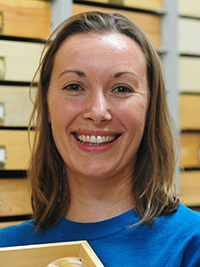 Jessica P. Gillung
Jessica P. Gillung
McGill University
Bio: Jessica is an assistant professor at McGill University, where she also serves as the director of the Lyman Entomological Museum. Brazilian-born and raised, Jessica received her bachelor's and master's degrees from the Federal University of Paraná and University of Sao Paulo, respectively. She completed her Ph.D. at the University of California, Davis, in 2018, and she subsequently worked as a postdoctoral associate at Cornell University. Her research program combines field work, morphology, DNA sequence data, bioinformatics, and comparative methods to unravel the evolution of insects and elucidate their patterns of diversification, encompassing multiple taxonomic rankings, from species to higher-level relationships.
Past ESA activity or other volunteer service: Jessica joined ESA as a student member in 2014, and she has been actively involved in the Society since then. She has presented her research at most Annual Meetings, and she serves as subject editor for Insect Systematics and Diversity. She participated in the UC Davis Entomology Games team in 2015–2016, winning four times. Her leadership roles within ESA include co-organizing career fairs at Pacific Branch Meetings, serving in vendor tables for the UC Davis Graduate Student Association, participating in elevator-pitch competitions, and serving as judge for the Pacific Branch awards. She also serves as associate editor for Ecology and Evolution, as director-at-large for the Entomological Society of Canada, and as member of the board of directors of the North American Dipterists Society.
Candidate statement: I am extremely motivated to serve the ESA as SysEB VP-Elect, not only to strengthen my own connections and promote insect systematics but also to support the upcoming generations of entomologists. I recognize the challenges underrepresented groups in higher education face, and I look forward to serving the diverse SysEB community. My commitment to fostering equity, diversity, and inclusion is informed by my personal experiences as a Latina woman, a first-generation college and graduate student, and an international scholar living in North America. As VP-elect, I plan to contribute to and develop strategies to increase inclusion and accessibility, boost student and community engagement, and empower people from underrepresented groups in systematics and entomology.
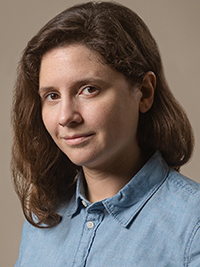 Carly Tribull
Carly Tribull
Farmingdale State College, State University of New York
Bio: Carly Tribull is an assistant professor at Farmingdale State College (SUNY), where they research the taxonomy of extinct and extant parasitoid wasps in the families Bethylidae and Dryinidae. As a professor at a primarily undergraduate institution, a large part of their career focuses on the preparation of the next generation of entomologists. Carly is a proponent for meaningful mentorship of undergraduate students as well as the creation of educational materials that enrich students' learning of entomology, evolutionary biology, and biodiversity. Carly has also created numerous educational outreach materials, largely in the form of web comics and graphic novels, to foster an appreciation for comparative biology in a wide range of audiences. In 2020, Carly was awarded the Early Career Professional Teaching and Mentoring Award for their efforts in this field.
Past ESA activity or other volunteer service: For over 10 years, Carly has been a volunteer for the Society and is extremely familiar with its organizational aspects. On a near-yearly basis, they have organized Annual Meeting symposia and served as a student competition judge. Carly was the SysEB representative to the Early Career Professional Committee and later the ECP Committee chair, a role in which they finalized the push for ECPs to gain a seat on the ESA Governing Board. Since 2021, Carly has served on the Annual Meeting planning committee and was a co-chair for the 2022 Joint Annual Meeting in Vancouver. Finally, Carly is currently a member of the Education and Outreach Committee, where they uphold entomologists who are primarily educators and outreach professionals.
Candidate statement: SysEB members are incredibly diverse, and I believe the VP-elect, as part of the presidential line, must work to help THEM, whether they are a student, experienced professional, or citizen scientist. As VP-elect, I will strive to help ALL of our members, from taxonomists describing new species and local records to systematists producing sweeping genomic revisions. I will work to create new funding opportunities for members whose research is often overlooked and for those who struggle to attend meetings. And, in this time when so much biodiversity is threatened, I will seek to enrich our outreach and education initiatives and support members who are working to build a foundational love for insects, their diversity, and the irreplaceable roles they play in our world.
SysEB Section Treasurer
- Manpreet Kohli, Baruch College, City University of New York
- Will Kuhn, Discover Life in America
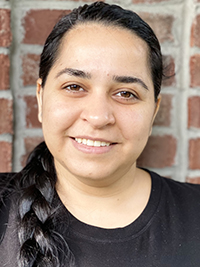 Manpreet Kohli
Manpreet Kohli
Baruch College, City University of New York
Bio: Manpreet Kohli is currently an assistant professor of biology at Baruch College in City University of New York and a research associate at the American Museum of Natural History. She received her Ph.D. from Rutgers University, Newark. She studies patterns of insect biodiversity using systematics, molecular phylogenetics, population genetics and genomics. Currently, her research is focused on unravelling the evolutionary dynamics of arctic-dwelling dragonflies and damselflies and understanding how these insects respond to rapid climatic changes.
Past ESA activity or other volunteer service: Manpreet has been a proud member of ESA for over 10 years. ESA has played a crucial role in her success as an entomologist; from being a student to a postdoc and now an assistant professor, she has gained valuable skills at ESA meetings and through committee service. Throughout these years she has been fortunate enough to serve ESA in various capacities: symposium organizer, Eastern Branch representative to Student Affairs Committee, and Eastern Branch representative to Early Career Professionals Committee. Additionally, she co-founded Entomologists of Color, an organization focused on diversifying the field of entomology. She has also served as treasurer for the Worldwide Dragonfly Association and Dragonfly Society of the Americas. Currently, she also serves on the Diversity, Equity and Inclusion Committee for Society of Systematic Biologists.
Candidate statement: I believe with my experience I would be able to serve ESA well in this capacity. Especially, I will bring values and learning from my work at Entomologists of Color and the Society of Systematic Biologists DEI Committee in implementing the best practices for recruitment and retention of diverse students at ESA. ESA is a valuable platform for entomologists, and by serving ESA I get a unique opportunity to play a role in mentoring the future generations of entomologists.
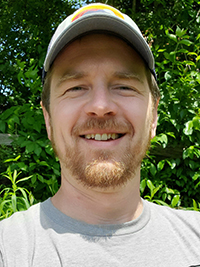 Will Kuhn
Will Kuhn
Discover Life in America
Bio: Dr. Will Kuhn is an entomologist and aspiring naturalist. Kuhn earned his bachelor's degree in biology at University of Texas, Austin, and his master's in entomology at Virginia Tech. For his Ph.D. at Rutgers University, Newark, he developed machine learning-based image classification for dragonflies and damselflies. He received an NSF Postdoctoral Research Fellowship in biology to extend these methods and also served as senior personnel on an NSF Advancing Biological Infrastructure grant, which stemmed in part from his dissertation work. In 2018, he began as director of science and research with Discover Life in America, a nonprofit seeking to catalog every living species in Great Smoky Mountains National Park.
Past ESA activity or other volunteer service: Over his roughly 15 years as an ESA member, Kuhn has presented nearly every year, he's co-organized two symposia (2013 and 2021) and a workshop (2018) at ESA Annual Meetings, co-organized an Eastern Branch Meeting symposium (2019), and is co-organizing another symposium at this year's Annual Meeting. He served as the SysEB representative on the Early Career Professionals Committee from 2016 to 2019. This year he has thoroughly enjoyed mentoring a budding entomologist under the EntoMentos program. He received a SysEB travel grant in 2014. He has also served as webmaster for the Worldwide Dragonfly Association since 2017 and co-organized the 2019 International Congress of Odonatology in Austin with that organization.
Candidate statement: I am excited for the opportunity to give back to ESA, a society that has been an integral part of my academic upbringing and whose meetings are a deep source of fulfillment and enjoyment. As a member of the LGBTQIA+ community, I've been heartened to see the actions that ESA staff and leadership have taken to create a welcoming and encouraging environment for its diverse membership. As an ECP Committee member, I enjoyed being part of ESA's mission to nurture students and early-career professionals. If given the chance, I would love to once again be a part of ESA's forward momentum to continue to build a better society that grows and nourishes happy, healthy, world-changing entomologists!
SysEB Section Representative to the ESA Publications Council
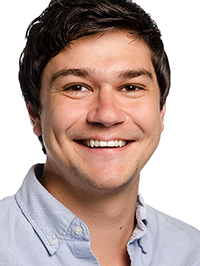 Phil Barden
Phil Barden
New Jersey Institute of Technology
Bio: Phil is an associate professor at the New Jersey Institute of Technology and an evolutionary biologist interested in eusocial arthropods and the social insect fossil record. He received a bachelor's degree from Arizona State University and his Ph.D. from the American Museum of Natural History, and he completed a National Science Foundation postdoctoral fellowship at Rutgers University. His work centers around understanding patterns of diversity, ecological impact, and the evolution of complex behavior using a blend of morphological, paleontological, and genomic methods. To ask questions with a deep-time perspective, his lab is primarily focused on ants and their fossil record as systems for testing concepts related to extinction and ecological turnover.
Past ESA activity or other volunteer service: Phil currently serves as the SysEB representative to the Publications Council, elected to the position in 2019. In 2020, he was appointed by Jessica Ware as a co-chair to the Annual Meeting Program Committee; as part of this appointment, he has assisted in organizing the 2021, 2022, and 2023 Annual Meetings. Prior to joining the Publications Council, Phil was a member of the Journal of Insect Science Editorial Board from 2017 to 2019. As an ESA member since 2010, Phil has also volunteered as a session moderator, student competition judge, and panel contributor during Annual Meetings. He currently serves as an editor at PLOS ONE and has peer reviewed for over 40 journals.
Candidate statement: I currently serve as Publications Council representative and, if elected, I would continue into a second and final term. Over the course of my current term, two issues emerged as especially pressing in my view. First is ensuring that we members feel empowered to contribute to and shape ESA's nine journals—this includes helping authors and readers feel welcome, recruiting and retaining diverse editors, and helping to make the publication process as transparent as possible. Second is navigating the future of open access as the publishing landscape changes rapidly before us. If reelected, these would be my core focus. More important than my own perspective, though, I hope to hear from membership to make sure our journals reflect our ambitions for our Society. Thank you for considering my nomination.
Early-Career Representative to the SysEB Section Governing Council
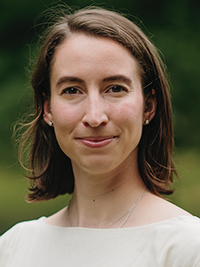 Emily L. Sandall
Emily L. Sandall
AAAS Science & Technology Policy Fellow at USDA Foreign Agricultural Service
Bio: Emily's passion for natural history was kindled during her childhood on her parents' farm in central Illinois, and she found passion in insect biodiversity in the Frost Entomological Museum at Penn State University. She earned her bachelor's degree in biology from Loyola University Chicago in 2013 as the first person in her family to go to college and then earned her Ph.D. in entomology from Penn State University in 2020. Emily then continued her research in dragonfly biogeography as a postdoctoral research associate in the Yale Center for Biodiversity and Global Change. She is currently a 2022-2023 AAAS Science and Technology Policy Fellow, placed as a science advisor on biodiversity-related issues in the Office of Trade Policy & Geographic Affairs at the Foreign Agricultural Service of the U.S. Department of Agriculture.
Past ESA activity or other volunteer service: Emily has been a member of ESA since 2015, serving as the SysEB representative to the Early Career Professionals Committee since 2020. On the ECP Committee, she serves as a coordinator for the Entomology Today Standout ECP Series and on the social media committee. Within ESA, she additionally serves on the Insect Biodiversity Task Force and has participated as a judge for the student competition of the annual meeting, evaluated symposia, and awards. She has also held roles on the social media committee of the World Dragonfly Association and has been actively involved in public engagement and outreach opportunities, particularly during her Ph.D. at Penn State University. She has been an instructor at Art & Science in the Woods, a day camp for youth in central Illinois that provides programming in an engaging outdoor setting, as well as an instructor at a natural history summer camp at Penn State.
Candidate statement: I am interested in continuing my time as the Early Career Professional representative to the SysEB Governing Council. As someone with a rural background and a non-academic career, I am especially eager to continue advocating for diverse programming and training opportunities for early-career entomologists and ensuring that insect biodiversity is prioritized in not only ESA but also other entomological research, training, and application opportunities. I see great value in preparing entomologists broadly because there are so many arenas in which they can contribute to how we study and care for the natural world. I greatly value scientific integrity, ethics, accountability, and holistic thinking—at the institutional, policy, and societal level.
Student Representative to the SysEB Section Governing Council
- Judicaël Fomekong Lontchi, Brigham Young University
- Laura Fricke, University of Minnesota
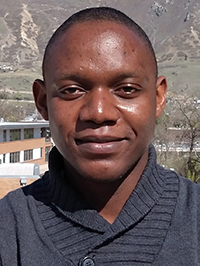 Judicaël Fomekong Lontchi
Judicaël Fomekong Lontchi
Brigham Young University
Bio: Judicael is a student from Cameroon. He holds a master's degree in zoology (specializing in entomology) from the University of Yaoundé 1 (Cameroon) and is currently doing a Ph.D. at Brigham Young University, in Provo, Utah. His research interests include taxonomy, morphology, and ecology of Odonata (dragonflies and damselflies). His current research project will contribute in the ongoing effort to infer the relationships between dragonfly species and identify the drivers of the diversification process in Odonata. His research experience also includes understanding how dragonflies' communities respond to disturbances to their habitats in the Congo Basin Forest and determining which species could be used as reliable bioindicators of the health status of freshwater ecosystems in Africa.
Past ESA activity or other volunteer service: As a member of ESA, Judicael attended his first ESA meeting in Denver in 2021. He was recently a participant in ESA's Professional Advancement Career Training, which aimed at equipping mentees with the tools to make them future leaders. Before ESA, he was a member-at-large in the Education and Student Affairs Committee of the Society for Conservation Biology (SCB) where he actively contributed in finding initiatives to increase students' membership and their participation in SCB's activities. He currently serves on the policy committee of the Africa Section of the SCB where, with other team members, they edit and validate all the policy statements for which the authors need an endorsement from the board.
Candidate statement: I am running for student representative because I want to contribute to our Society, which has benefited me in so many ways in just the couple of years for which I have been a member. As someone who has served on other committees, I believe I have a lot to share, and I look forward to bringing my experience to serve the students I will represent. If chosen, I will work to learn from the leaders in the Governing Council and all other sources available to represent this role to the best of my ability.
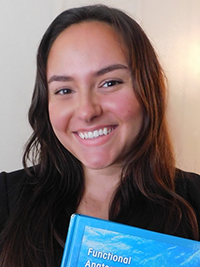 Laura Fricke
Laura Fricke
University of Minnesota
Bio: Laura Fricke received an associate of arts degree from Normandale Community College in Minnesota with an emphasis in biology. Then transferring, she received a B.S. with honors from Augsburg University. An undergraduate research opportunity she completed through the NSF Research Experiences for Undergraduates program was at the American Museum of Natural History in the entomology department, which inspired her interest in insects. She now is a Ph.D. candidate at the University of Minnesota in the entomology program, studying the mechanisms of insect-microbe relationships. Her main areas of interest include using functional genomics and molecular biology to interrogate complex symbiotic relationships found in the natural world. A recent achievement includes funding her Ph.D. project as a recipient of the USDA predoctoral National Institute of Food and Agriculture grant.
Past ESA activity or other volunteer service: Laura has been a member of ESA since starting as a Ph.D. student in the fall of 2020 and has attended and presented at a North Central Branch Meeting as well as two Annual Meetings. She also involves herself in networking workshops offered at these meetings and participated in the ESA Professional Advancement Career Training program (2022-2023). At the University of Minnesota, she has taken on multiple roles in the student entomology club, Frenatae, as well as other groups outside of entomology including membership in the DEI committee and acting as Graduate Student Board Representative of the Entomology Program. Within Frenatae, Laura has held the positions of secretary, vice president, and treasurer.
Candidate statement: As a member of the Graduate Student Board and Diversity, Equity, and Inclusion Committee at the University of Minnesota, I have demonstrated motivation to ensure student opinions are heard. I am also interested in attending the business meeting to connect with other members of the Governing Council and better understand the processes behind ESA governance.
International Branch Elections
International Branch President-Elect
- Muhammad Haseeb, Florida Agricultural and Mechanical University
- Véronique Martel, Natural Resources Canada
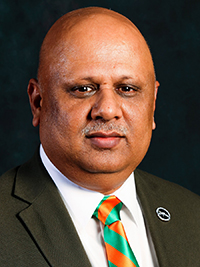 Muhammad Haseeb
Muhammad Haseeb
Florida Agricultural and Mechanical University
Bio: Dr. Muhammad Haseeb has been with the ESA for over two decades now. He is a member of the International and Southeastern Branches. He is an associate professor of entomology and IPM eoordinator at the Florida A&M University. Also, he has collaborated and presented his scientific work in 23 countries. He has secured over $21.35 million as a principal and co-principal investigator from federal and state funds to support his academic, research, and extension and outreach work. Dr. Haseeb has presented extensively (over 150 presentations) in the ESA, SEB, ICE, and other professional meetings. Also, he has published 78 scientific publications during his tenure. Dr. Haseeb has organized 21 symposia under the ESA, SEB, FES, and ICE platforms. He is very passionate about serving as a president-elect for the International Branch of the ESA and asking for your kind votes.
Past ESA activity or other volunteer service: Dr. Haseeb has been volunteering every year for the ESA for the graduate and undergraduate symposia as a moderator and judge. He participates in diversity, equity, and inclusion initiatives. He organized seminars and presented his ongoing research, academic, and extension work. He supports the International Branch as a member.
Candidate statement: I would like to make International Branch more robust and vibrating so that we could grow and expand our boundaries to support our international stakeholders and clientele more effectively. I would like to support our virtual and in-person symposia to attract more presenters to IB meetings. I would like to assist in growing the IB membership. I would like to jointly organize symposia with all other branches of entomology so that we can interact better and serve the ESA more effectively.
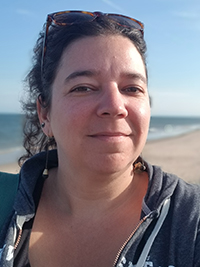 Véronique Martel
Véronique Martel
Natural Resources Canada
Bio: Dr. Véronique Martel has a M.Sc. (2003) and Ph.D. (2007) in entomology from McGill University. She then undertook two postdocs in Europe: Sweden (2007-2009) and France (2009-2011). She started as a research scientist for Natural Resources Canada (NRCan) in Québec in 2011, where she works on the ecology of forest pest insects and their parasitoids. She has received several awards for her research and her involvement in public outreach: the young researcher Léon-Provancher Award from the Entomological Society of Quebec, three recognition awards from the Canadian Forest Service, two recognition awards from NRCan; a service award from the Entomological Society of Canada, and two awards for excellence and leadership in Official Languages.
Past ESA activity or other volunteer service: Véronique has always been involved with societies. At the regional level (Entomological Society of Quebec), she has been the registrar (2012), vice president (2013), president (2014) and past president (2015). She also co-chaired the organizing committees of three annual meetings. At the national level (Entomological Society of Canada), she has been chair of the Bilingualism Committee (since 2005) and the Publication Committee (since 2021) and director-at-large (2015-18) and subject editor of The Canadian Entomologist (since 2012). For ESA, she has served as the International Branch secretary since 2020, being involved in different activities including chairing sessions for the Virtual Symposium. She is also a subject editor for the Journal of Economic Entomology.
Candidate statement: After almost three years on the governing board of the International Branch, I now have a good understanding on the Branch's objectives and business and would like to be able to do more for the members. The International Branch can make a difference for entomologists all around the world by allowing them to connect and network with their colleagues, without the need to travel, giving equal opportunities to share their research. It is thus important to keep the Branch active and visible to all members and also to non-member entomologists. If I am elected, I will try to keep the Branch vibrant and try to recruit new international members.
International Branch Secretary
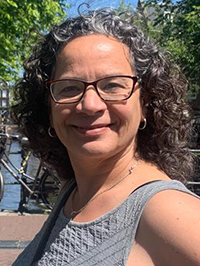 Tania Zaviezo
Tania Zaviezo
Universidad Católica de Chile
Bio: Tania Zaviezo, Ph.D.,earned a degree in agricultural sciences at Universidad Católica de Chile and a Ph.D. in entomology at the University of California, Berkeley. Currently she is a full professor at Universidad Católica de Chile. Her areas of interest are IPM and biological control. Her main research question is how biodiversity at different levels, from populations to landscape, influences biological control success. Also, she works in the use of pheromones for pest management, particularly in mealybugs. Additionally, she has worked in invasion biology and the use of citizen science to track invasive species. Most of her research includes collaborators from around the world.
Past ESA activity or other volunteer service: In her institution, Tania has volunteered for several University-wide committees, including Women in Academics, New Regulations for Failing Students, and General Education Curriculum among others. She organized the 4th International Symposium in Biological Control of Arthropods in Pucón, Chile, in 2013, and has served as part of the scientific committee for most of the meeting series since 2009. She also joined the international expert panel for the work on Environmental Risk Assessment of Generalist Arthropod Biological Control Agents carried out in 2018-2019.
Candidate statement: My interest for serving in this volunteer position is to foster new relations with the international entomological community and help in the inclusion of scientists from the Global South into international networks. I am also very grateful for the help I have received from volunteers in the past, and this is an opportunity to give back.
International Branch Early Career Professional Member-at-Large
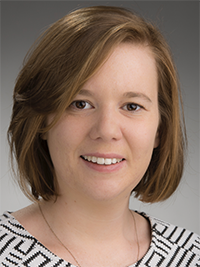 Pauline Deschodt
Pauline Deschodt
Simon Fraser University
Bio: Pauline Deschodt is currently a postdoctoral fellow at Simon Fraser University. For her Ph.D., she studied pathogen interactions in the cabbage looper. As a postdoc, she continues to investigate the effects of mixed pathogen infections within a single host as well as the role of the gut microbiome in insect susceptibility to baculoviruses. Pauline obtained her master's degree in France, with a focus on plant protection and biological control. She worked on the olive fruit fly parasitoid at the European Biological Control Laboratory and studied beneficial arthropods in apple orchards analyzing the dispersal abilities of insect predators. Besides her research, Pauline is an active member of her department at Simon Fraser University. In 2020, she co-organized the Canadian Entomology, Ecology and Evolution seminar series with Dr. Paul Abram.
Past ESA activity or other volunteer service: Since she started her Ph.D. in Vancouver in 2015, Pauline has been involved in a few societies within British Columbia and internationally. From 2016 to 2018, she was the graduate student representative for the Professional Pest Management Association of British Columbia and again from 2019 to 2021. From 2018 to 2020, Pauline was also the student representative for the microbial division of the Society for Invertebrate Pathology. At Simon Fraser University, Pauline stayed involved in the biological sciences department, first by serving in a graduate student representative role on the scholarship committee (2016-2018), then by becoming the chair of the graduate caucus (2018-2019). Outside of the university, Pauline has been a volunteer judge for the annual Regional Science Fair since 2017.
Candidate statement: Being an active member of the entomological societies is being part of a community and that was an integrative part of my growth as an entomologist. I am a candidate for the Early Career Professional position because, as a freshly graduated Ph.D., it is particularly important to remain connected with my peers. I am at a stage in my career that enables me to be an intermediate between grad students and senior researchers. This position is also a great opportunity to better understand how the International Branch can guide junior entomologists all over the world. My experience as an international graduate student in Canada enables me to better understand the needs of both international graduate students and early career scientists. I would be honoured to be part of the International Branch of the ESA and help support the diversity of entomologists in the Society.
North Central Branch Elections
NCB Representative to the ESA Governing Board
- Mary Gardiner, Ohio State University
- Sajjan Grover, Bayer Crop Science
 Mary Gardiner
Mary Gardiner
Ohio State University
Bio: Dr. Mary M. Gardiner received her Ph.D. in entomology from Michigan State University in 2008. She is a professor in the Department of Entomology at Ohio State University and co-director of the environmental science graduate program. Her research program focuses on the ecology and conservation value of urban greenspace, with a focus on vacant land. Mary is also a state specialist in extension whose programming focuses on managing urban habitats to support insect conservation. Toward this aim, she released a book titled Good Garden Bugs: Everything You Need to Know about Beneficial Predatory Insects in 2015. Mary currently advises five Ph.D. students and one M.S. student. She teaches graduate courses in presentation skills and grant writing.
Past ESA activity or other volunteer service: ESA North Central Branch past president (2022-2023), president (2021-2022), president-elect (2020-2021), and local arrangements chair (2016). Environmental Entomology subject editor (2013-2015) and associate editor (2010-2013).
Candidate statement: Membership in the Entomological Society of America has facilitated many of my career successes. Our organization provided me with opportunities to network and land job opportunities, build research and extension collaborations, present and publish, and be supported by so many mentors and friends. In prior service to the North Central Branch, I organized workshops and symposia to provide graduate students and early career professionals with skills to advance their speaking and writing skills, expand their research toolbox, and build their professional network. If elected to this new role, I aim to work with the Governing Board to identify unmet professional development needs of current and future members and seek ways for ESA support their growth in all aspects of our scientific discipline.
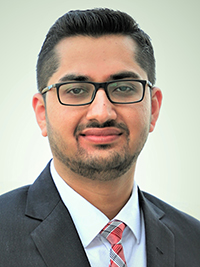 Sajjan Grover
Sajjan Grover
Bayer Crop Science
Bio: Sajjan Grover, Ph.D., is currently employed as scientist-II (Hemipteran discovery) at Bayer Crop Science. He earned his master's in entomology from Punjab Agricultural University, India, and finished his Ph.D. in entomology at University of Nebraska-Lincoln (UNL) in 2021. During his Ph.D., Sajjan worked on molecular plant-insect interactions with Dr. Joe Louis. His career goal is to contribute to the development of novel and sustainable agricultural pest management strategies. Sajjan has been heavily involved in organizing and participating in outreach events and in department and ESA service. Sajjan is currently an NCB representative to ESA Diversity & Inclusion committee, PBT Section representative to ESA Science Policy Committee, and an ECP representative to the ECP Extension, Outreach and Engagement Award judging panel.
Past ESA activity or other volunteer service: Sajjan has been an active member of ESA since 2017. He has delivered and won awards for several oral, poster, and infographic presentations and has participated in the student debates and Entomology Games. Sajjan has organized speed networking sessions and symposia and a mini-workshop on careers in industry at NCB and ESA Annual Meetings. Sajjan served as a judge for the student competition and debates and moderator for several sessions at NCB and ESA Annual Meetings. He demonstrated leadership by serving as a student representative on the NCB Professional and Honorary Awards Committee, ESA Student Affairs Committee, president of the UNL Graduate Student Association, and volunteering on several other committees. Sajjan interacts with students, ECPs, and members through these activities and find ways to give back to society. He has been recognized with several ESA awards.
Candidate statement: Over the last few years, ESA has continued achieving excellence by positively engaging members in the areas of science communication, innovation, science policy, diversity, equity, and inclusion. As student and ECP representative, I have been fortunate to experience and contribute to several ESA activities through serving on different committees. Utilizing those experiences, I am very much interested in advocating for the next generation of scientists, seeking new opportunities to engage diverse ESA members at different levels, and meeting the needs of the Branch and Society. I am excited to contribute to the success of the North Central Branch by ensuring effective and open communication with the Society and fostering interactions that span diverse membership. It will be an honor to continue to serve ESA and to advocate for insect science.